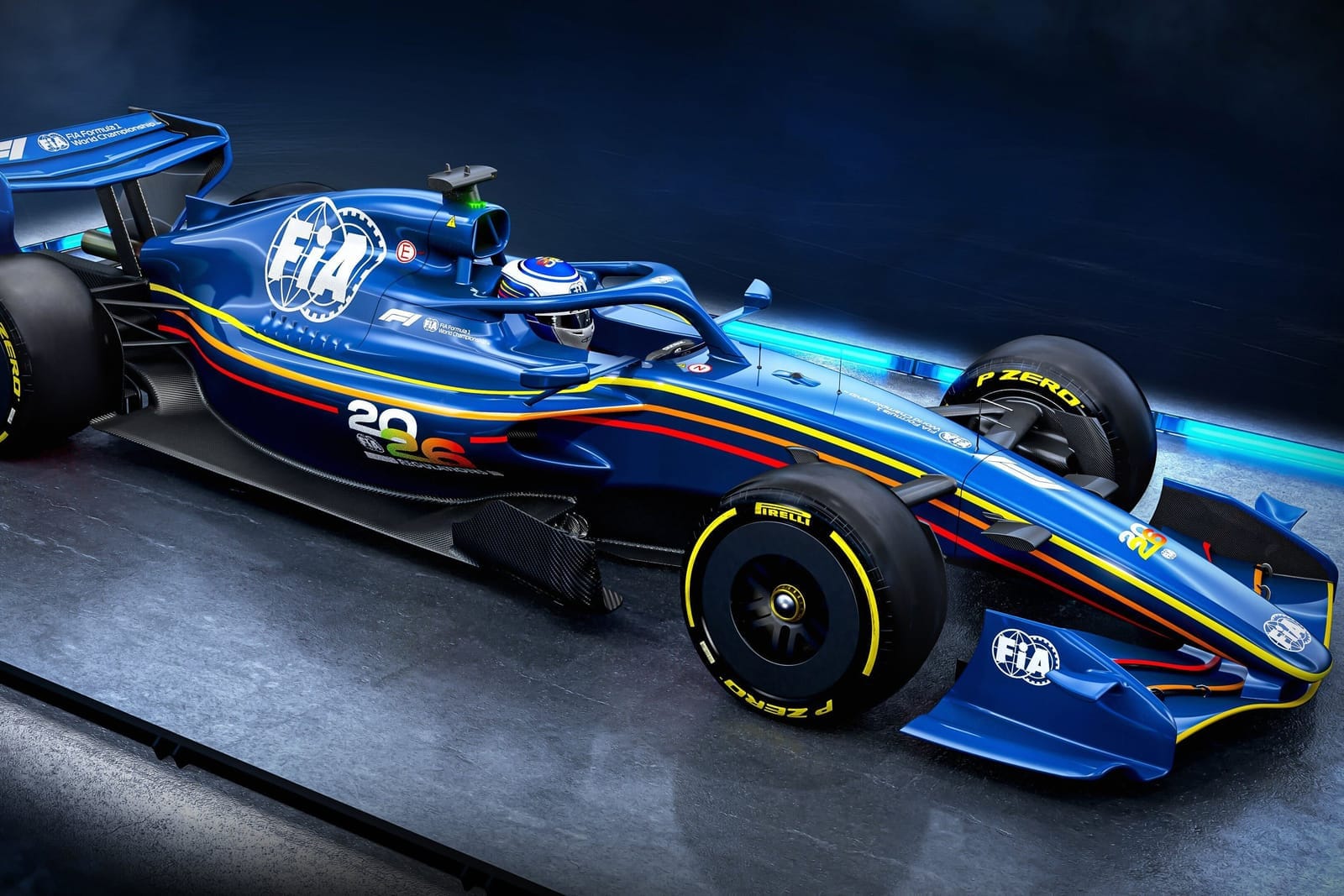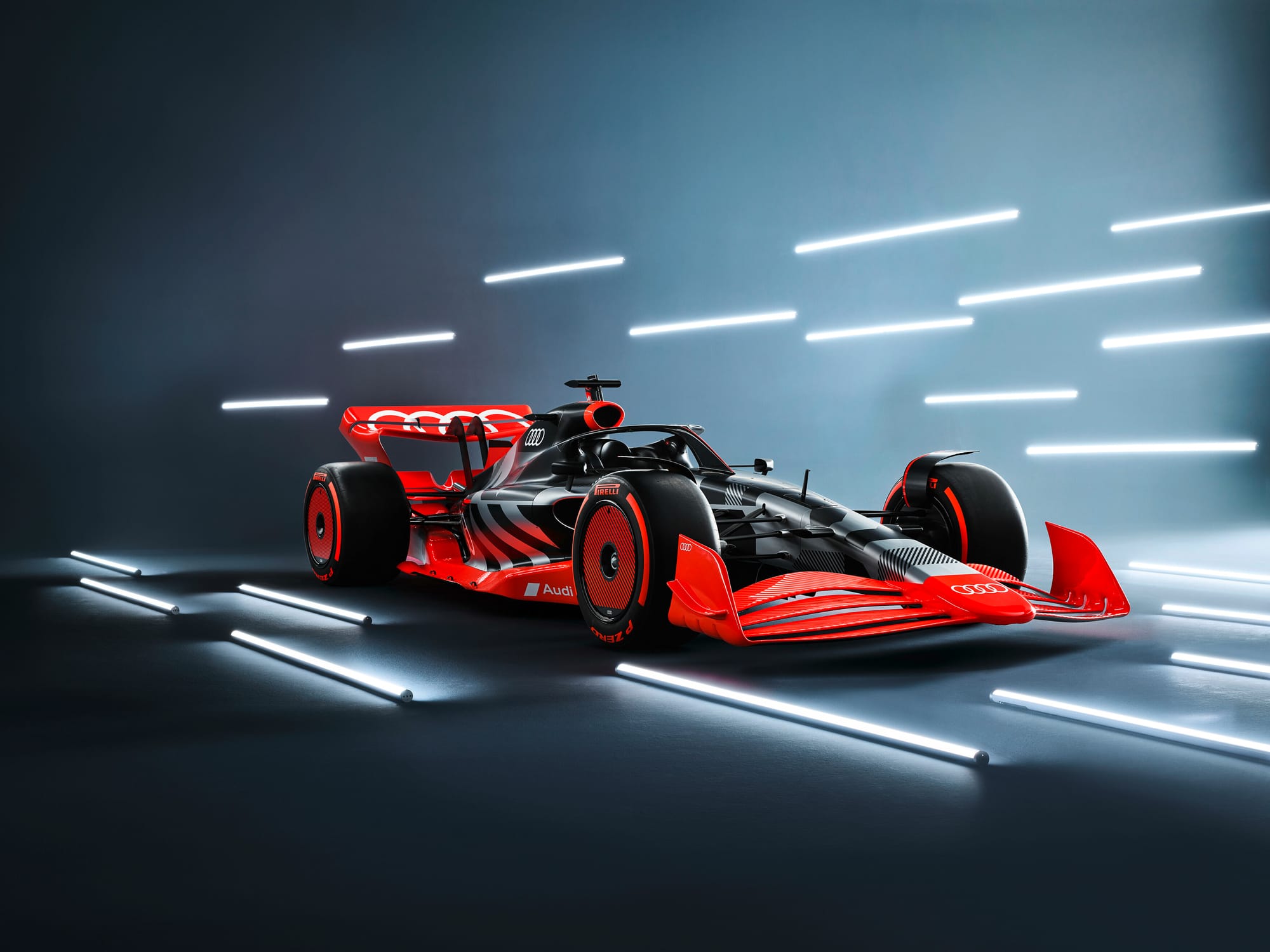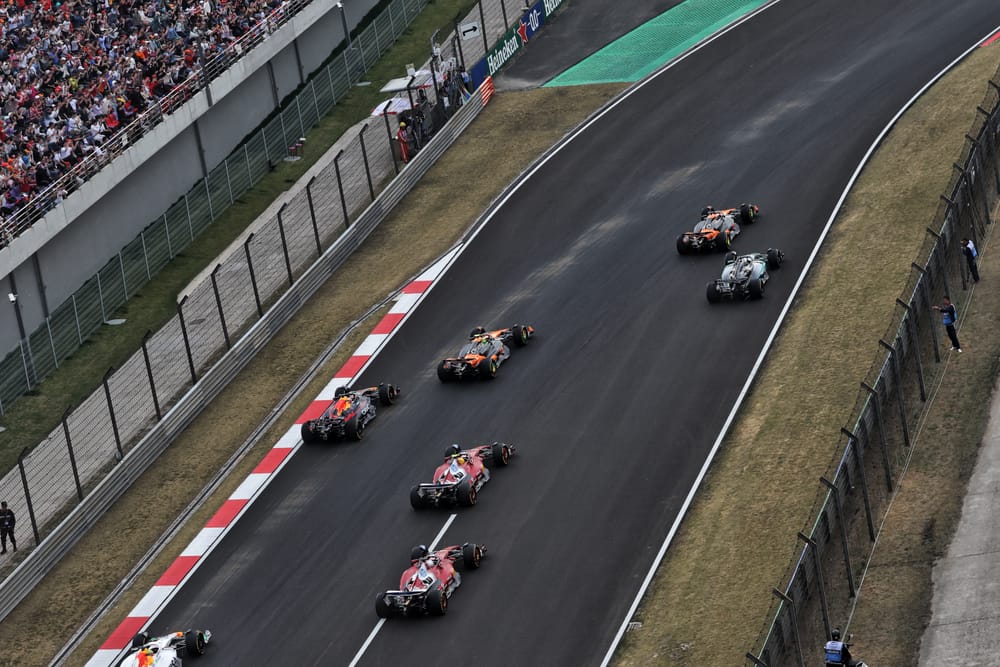Formula 1's engine manufacturers have been called to a meeting with the FIA at the Bahrain Grand Prix next weekend to gather thoughts on a potential future switch to V10 engines, The Race has learned.
It is understood that the gathering, which is scheduled to take place on the Friday of next week's event at Sakhir, is aimed at helping the FIA get a better understanding from relevant stakeholders about how much support there is for a change of F1's engine regulations longer term.
Up until now, individual discussions have taken place between the FIA's single seater director Nikolas Tombazis and relevant manufacturers to gather some preliminary feedback on what the carmakers think of the idea.
However, with FIA president Mohammed Ben Sulayem due to attend his first race of the year in Bahrain, and him having championed the V10 evaluation process so far, the gathering at Sakhir will offer more formal surroundings to get a clearer global picture on where things stand.
There is no proposal on the table right now in terms of a clear direction being looked at and what any future engine regulation could look like, but instead what the FIA is eager to get on top of is which way the wind is blowing with the manufacturers.
But any hopes that Ben Sulayem may have had of finding enough support to fast-track a change of engine plans away from the incoming 2026-spec turbo hybrids as early as 2028 appear to be fading, with sources suggesting there is not enough backing among carmakers for a new direction for an early switch to fall into place.
What has to happen for an early switch

Any alteration to the timing of the next engine rules cycle, which currently runs from 2026 until the end of 2030, is covered by the terms of F1's Power Unit Governance Agreement.
What that agreement calls a "fundamental" change - such as switching engine formula in 2028 or 2029 - would require backing from the FIA, FOM, plus four of the five manufacturers that are currently officially entered.
At the moment, it is understood that this level of support is not in place, with some clear stances having already emerged and enough carmakers against the switch for it not to go through were things to get as far as a vote.
While it is understood that Red Bull and Ferrari are in favour of the move to an alternative engine before the current rules cycles is planned to end after 2030, that view is not shared by others.
Audi has already made it clear that its entry into F1 was because it fully embraces the increased electrification that is coming for 2026 – where approximately 50% of energy from the power unit will come from batteries.
It recently released a statement stating that the new rules: "were a key factor in Audi's decision to enter Formula 1. These power unit regulations reflect the same technological advancements that drive innovation in Audi's road cars".

Honda has so far fallen short of making any official comment on the matter, but sources have indicated that it too is against an early move away from the next generation of turbo hybrids that convinced it to reconsider its exit from F1.
And while Mercedes has indicated that it is open to discussions about a future change of direction, it thinks it is far too early to be looking at doing so now before the 2026 engines have even run on track for the first time.
Speaking to The Race at the Chinese Grand Prix, Mercedes boss Toto Wolff said: "It's a bit premature, in my opinion, before we have even started with those engines, to bring up a possible future concept.
"In order to acknowledge the standing of F1 as the biggest global sport that attracts vast audiences and the best car companies in the world, we need to cheer for any such sustainable new concept for 2026."
While support to change engines before 2031 does not appear to have enough backing at the moment, this does not stop the idea of moving to a different engine – such as a V10 or a turbo V8 with a kinetic energy recovery system (KERS) – to still be on the table for after that date.
The FIA has been clear that it feels that F1 needs to move to a cheaper engine concept in a bid to weather any problems that may come from a future economic downturn.
Tombazis said in China: "The world economy does lead to views that maybe we should try to cut costs a bit more, and the current power units are way too expensive.
"That is a fact. We would like them to be cheaper, and that's why the president made the comments [on social media] about the V10 engine in '28 and so on."



